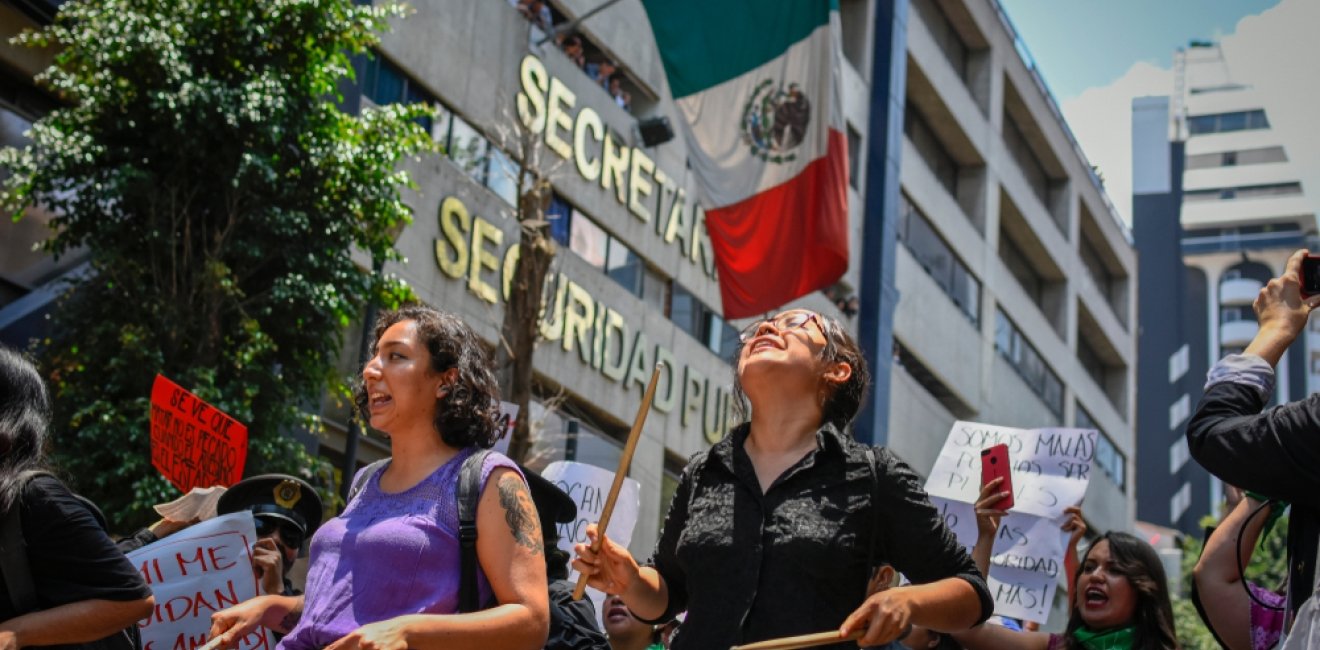
This is not a constitutional reform. This is an attack on the constitution and a blatant power grab, a move more likely to be seen in a banana republic than in a serious country like Mexico. "Constitutional reform" has a nice ring to it, doesn’t it? But we must beware of appearances. As George Orwell clearly stated, autocracies distort language, strip it of its meaning, and can even give words a connotation contrary to their original sense. This manipulation of language is no accident. Orwell succinctly captured this in his observation: “Political language […] is designed to make lies sound truthful and murder respectable.”
In this way, the ongoing power grab in Mexico is disguised as a "constitutional reform." However, it contradicts the political progress that Mexico has made over the last 40 years, which has transformed the country from an authoritarian, hegemonic party system into a modern and respected multiparty democracy. A key component of this transformation was granting autonomy to the electoral authorities, distancing them from the PRI-dominated government. For many years, Mexico’s elections were organized by the Ministry of the Interior (Secretaría de Gobernación), and their validity was declared by the PRI-dominated Congress. In effect, this meant that the government acted as both judge and jury, creating an incestuous relationship between the government and the electoral authorities. Naturally, this led to electoral fraud and numerous post-electoral protests.
Beginning in 1977, the PRI recognized that the existing model was untenable. The democratic winds blowing from Southern Europe eventually crossed the Atlantic and reached Latin America, sparking a two-decade-long democratic transition. This transition began when the PRI, on its own initiative, passed a reform in 1977 that resulted in a political opening by granting legal recognition to opposition parties. This initial reform was followed by a series of subsequent electoral reforms in 1986, 1989–1990, 1993, 1994, and 1996. At every stage of this lengthy process, the goal was to grant increasing autonomy to the electoral authorities.
This process culminated in 1996 when the Federal Electoral Institute (IFE) was granted complete autonomy from the government, and this autonomy was enshrined in the constitution. Since then, five presidential elections have taken place, and three parties have alternated in power: PAN from 2000 to 2012, PRI from 2012 to 2018, and MORENA since 2018. As US-Polish political scientist Adam Przeworski argues, democracy is fundamentally a system of uncertainty. This uncertainty in electoral outcomes is precisely what we have witnessed in Mexico since 2000. However, this uncertainty is exactly what the current power grab aims to eliminate by bringing the electoral authorities back under government influence, albeit poorly disguised as a “democratic” reform.
AMLO’s proposal specifies that the board members of the INE will be elected by popular suffrage, with candidates proposed by the three branches of government: the executive (i.e., Morena), the legislative (i.e., Morena), and the judiciary (whose independence is already precarious). It is clear, therefore, that this is a thinly veiled attempt to roll back the political advancements that Mexico has achieved in recent decades. It represents a crude effort to tilt the electoral playing field in favor of AMLO’s Morena. Any interpretation of this “reform” that suggests otherwise is, at best, naive, and at worst, self-serving.
If this reform passes, it would represent a significant regression in Mexico's democratic development. It would signal a return to a past where electoral outcomes were predictable, not because of the will of the people, but because of the manipulation of the electoral process by those in power. This would be a betrayal of the democratic principles that have been painstakingly built over the last four decades. The stakes are high, and the implications of this so-called reform are grave. Dark times could be ahead for the whole of North America if this assault on democracy is allowed to proceed unchallenged. A backslide in Mexico's democratic governance could strain US-Mexico relations, disrupt regional stability, and challenge the shared commitment to democratic values that underpin cooperation between the two nations.
Author




